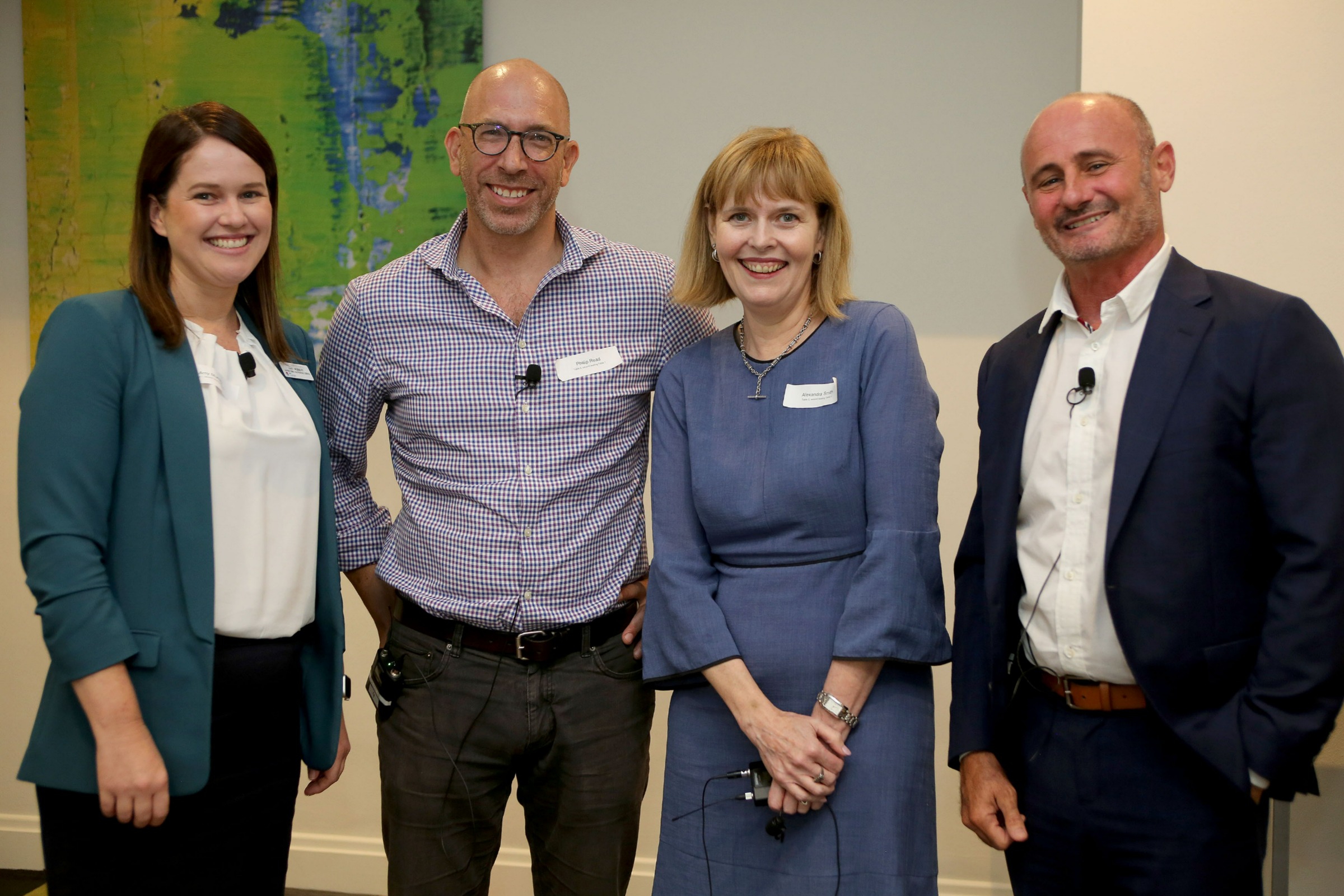Looking into the future of SESLHD
The SESLHD Future Forum was held last week, bringing together more than 120 SESLHD and NSW Health leaders to discuss key challenges and opportunities in the health system over the next decade.
This was a unique opportunity to get top healthcare thinkers in one room, including graduates of the SESLHD Leading with Impact Leadership Development Program, SESLHD Board members, the SESLHD Executive team and Chief Executives from our partners and NSW Health pillar organisations.
Tobi Wilson, Chief Executive SESLHD, opened the event and encouraged the attendees to be bold in their discussions: “This is our legacy for what the District looks like in ten years.”
“The day was a great success and I’d like to thank everyone for sharing their opinions and experience across a wide range of issues to help shape the discussion around how we evolve our District to continue to deliver exceptional care and healthier lives,” Mr Wilson said.
The Future Forum included two panel discussions, followed by table discussions around the topics of Demand, Dis/investment and Sustainability and SESLHD’s Future.
Thanks to the panellists for participating in the discussions: Deborah Willcox, Deputy Secretary, Health System Strategy and Planning, NSW Ministry of Health, Michael Still, SESLHD Board Chair, Professor Vlado Perkovic, Dean of Medicine & Health, University of New South Wales, Lee Hickin, Director National Chief Technology Officer, Microsoft ANZ, Dr Alex Smith, Divisional Director, St George Hospital, Dr Phillip Read, Director, SESLHD Sexual Health & Bloodborne Viruses, Amy Murray, Director, SESLHD Pharmacy Services, Chris Hay, Service Director, St George Mental Health.
The ideas generated at the forum will help inform the development of a District Clinical Services Plan (CSP), which will be completed later this year.
Staff across the District have been engaged in workshops over the past six months to inform the development of the CSP, which will build on existing site or service-based clinical service plans to focus on coordinated and collaborative service delivery, that prioritises equitable access to care across SESLHD.
Further consultations with staff are planned for the coming months to build on these discussions and identify key opportunities for our clinical services to evolve as the needs of our District’s population change.
